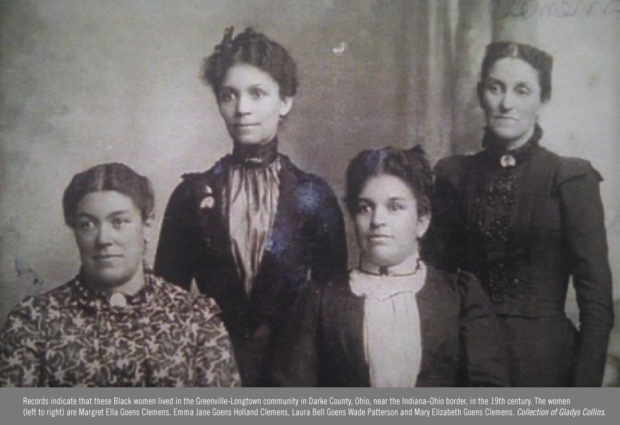
Jazma Sutton
Borderline Freedom: Free and Fugitive Black Women in Rural East Central Indiana before the Civil War
Jazma Sutton, a Ph.D. student at Indiana University, is writing a dissertation on the lived experiences of Black women in rural farming communities in antebellum Indiana, with a particular focus on the free and fugitive Black women who came to and through the Greenville Black Settlement of Randolph County. Sutton also works through and around Indiana archival silences about Black women by articulating and using a descendent archival practice method to recover the experiences and remembrances of antebellum Black Hoosier women. Sutton’s work complicates and deepens scholarship on Black migration to the Midwest and on frontier and antebellum rural populations and experiences, and it adds to the growing body of literature linking free Black communities in the Midwest to the Underground Railroad, especially the role of Black women residents and fugitives to practice antislavery resistance. Sutton will disseminate her findings in scholarly and popular publications, at conferences and at convenings, and she will continue her ongoing History Harvest work with descendants of Indiana’s free Black settlements.
Jazma Sutton earned a bachelor’s degree in Africana studies and history at Southern Illinois University Carbondale and a master’s degree in U.S. history at Indiana University Bloomington. She is currently pursuing a Ph.D. in U.S. history with a minor in gender studies at Indiana University Bloomington. Her dissertation explores the origins and development of Indiana’s rural free black communities, the gendered experiences of freedom, and free and self-liberated black women’s roles in the Underground Railroad. With sponsorships from the Center for Research on Race and Ethnicity in Society and from the Institute for Digital Arts and Humanities, Sutton recently led a History Harvest involving descendants of the Greenville community she studies in Randolph County, Indiana, and Darke County, Ohio, and has transformed their historical artifacts and oral histories into a digital archive called “Remembering Freedom.”
